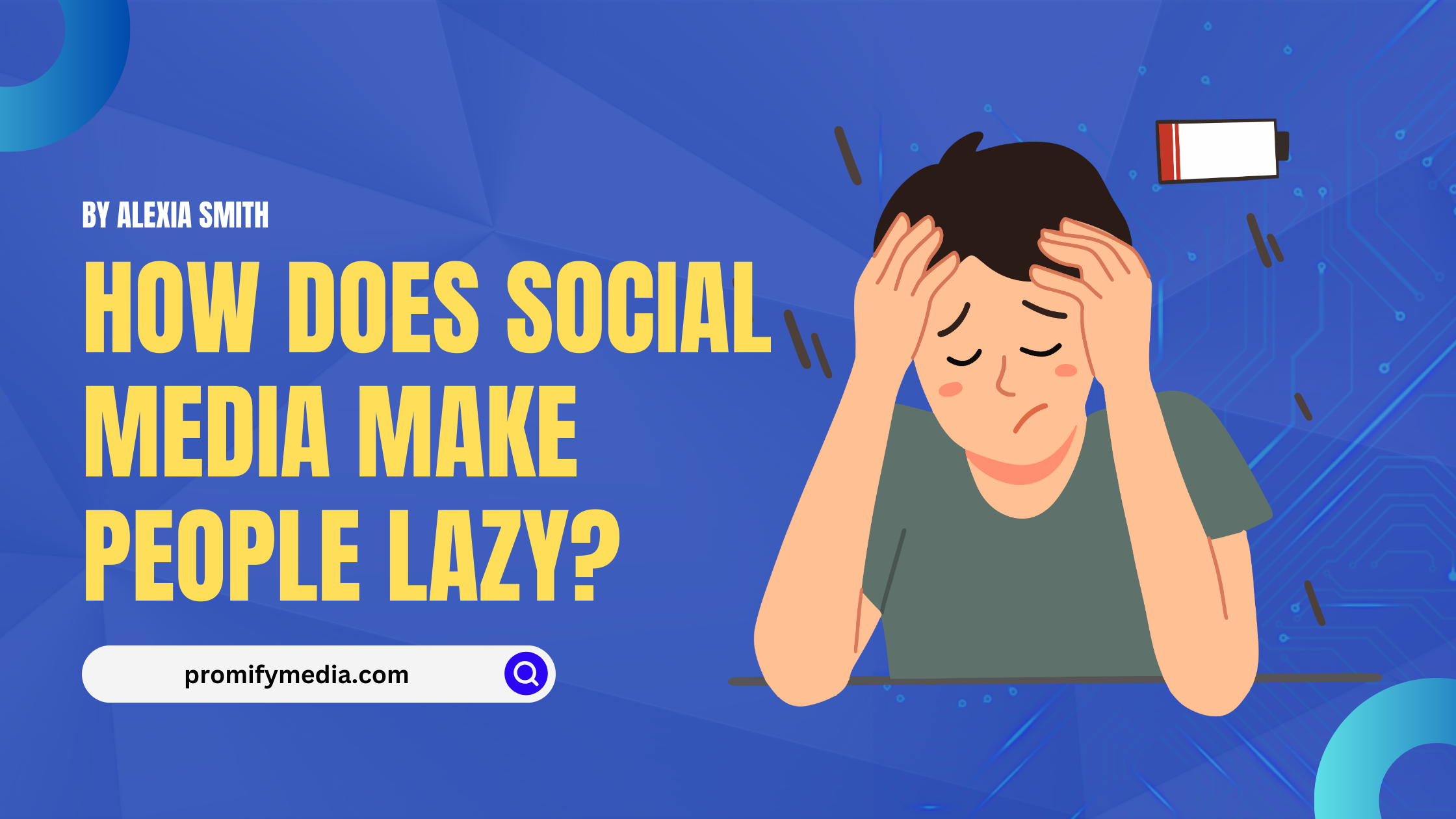Social media has become a huge part of our daily lives. We scroll through our feeds, like posts, and watch videos. While social media has its benefits, such as connecting people and sharing knowledge, it also has downsides. One of these downsides is that it can make people lazy. In this blog, we will explore how social media contributes to laziness and also share tips on how to use social media in a positive way.
How Social Media Encourages Laziness
1. Reduces Physical Activity
When people spend hours on social media, they often forget to move around. Scrolling through feeds or watching endless videos takes up time that could be spent doing physical activities like walking, exercising, or playing sports. Instead of going out and staying active, people prefer to relax on their couches and stay glued to their screens.
2. Promotes Procrastination
Social media is full of distractions. Many people check their phones for a few minutes and end up spending hours online. This leads to procrastination. Important tasks, like studying, working, or household chores, are delayed because people spend too much time on social media.
3. Encourages Mindless Consumption
Social media is designed to keep people engaged for as long as possible. People often consume content passively, scrolling without thinking or engaging deeply. This habit of mindless consumption reduces creativity and critical thinking skills. Instead of using their minds to solve problems or come up with new ideas, people are drawn into the endless stream of content.
4. Makes Access to Information Too Easy
Social media provides quick access to information. While this seems like a good thing, it also means people don’t put in the effort to research or learn deeply. They rely on short posts, summaries, or videos for knowledge, which can lead to shallow understanding.
5. Creates Dependency on Convenience
With features like online shopping, food delivery, and instant messaging, social media makes life more convenient. While convenience is good, over-reliance on these features can make people avoid tasks that require effort, such as cooking, shopping in person, or meeting people face-to-face.
How to Use Social Media in a Positive Way
While social media can make people lazy, it doesn’t have to. By using social media wisely, you can turn it into a tool for self-improvement and productivity. Here are some tips to use social media in a positive way:
1. Set Time Limits
It’s easy to lose track of time on social media, so set limits on how much time you spend online. Use apps or features that track your screen time and remind you to take breaks. For example, limit your social media use to 1-2 hours a day.
2. Follow Inspiring Accounts
Instead of following accounts that promote negativity or mindless entertainment, follow pages that inspire you. Look for accounts that share educational content, motivational quotes, or tips for healthy living. Surrounding yourself with positive content can improve your mindset.
3. Use Social Media for Learning
Social media is a great place to learn new skills or gain knowledge. Join groups or follow channels that teach something useful, like cooking, fitness, coding, or art. Use the platform to grow and improve yourself rather than just for entertainment.
4. Engage in Meaningful Interactions
Instead of mindlessly liking or scrolling, engage with people on social media in meaningful ways. Leave thoughtful comments, participate in discussions, or join online communities that share your interests. Building real connections online can make your social media experience more fulfilling.
5. Take Regular Breaks
It’s important to disconnect from social media every now and then. Take breaks to focus on other activities, like spending time with family, reading a book, or going for a walk. This helps you maintain a healthy balance between online and offline life.
6. Use Social Media to Set Goals
Social media can be a powerful tool to achieve your goals. For example, you can join fitness challenges, track your progress, or connect with others who have similar goals. Use social media as a source of motivation and accountability.
7. Be Mindful of Your Content
Think about what you share and consume on social media. Avoid sharing negative or harmful content, and don’t engage with content that promotes laziness. By being mindful of your online behavior, you can create a positive environment for yourself and others.
8. Balance Online and Offline Activities
Make sure to balance your social media use with offline activities. Spend time with friends and family, pursue hobbies, and stay active. A balanced lifestyle helps you enjoy the benefits of social media without becoming dependent on it.
9. Avoid Overuse of Convenience Features
While it’s tempting to use social media for everything, like shopping or ordering food, try to do some tasks manually. For example, cook your own meals or visit a store in person. These small actions can help you stay active and productive.
10. Focus on Quality Over Quantity
It’s not about how much time you spend on social media but how you use it. Focus on quality interactions and valuable content. Avoid wasting time on meaningless scrolling or watching videos that don’t add value to your life.
Conclusion
Social media has its good and bad sides. While it can make people lazy by promoting procrastination, reducing physical activity, and encouraging dependency, it doesn’t have to be that way. By using social media wisely, you can turn it into a tool for growth, learning, and connection. Set limits, follow inspiring accounts, engage meaningfully, and balance your online and offline activities. With these habits, social media can become a positive part of your life instead of a source of laziness.
Also Read
- ► Top 100 Rechargeable Flashlight Gloves SEO Hashtags for Instagram
- ► Top Reasons to Invest in a White Hat Link Building Service Today
- ► How Local Backlinks Can Supercharge Your SEO Results
- ► 10 Call to Action Ideas for Blog Posts
- ► How to Write a Nursing Blog
- ► 10 Common SEO Mistakes That Are Killing Your Website’s Rankings


Leave a Reply